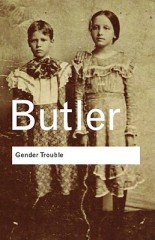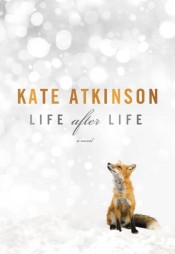The other day, on my usual never-ending, dangerous cycle of watching YouTube videos, I stumbled upon this lady. I clicked the link because I assumed it was a defence on fashion and our right to defend fashion. I was feeling vindictive after having a conversation regarding fashion and vanity, and I simply wanted to have a more interesting input about the topic. I clicked on that video out of a need to hear somebody voicing positive things about fashion. The young woman on the video goes on to explain how for almost nine years she had denied herself something she really liked because she was leaving it for special occasions, and I suddenly realised I did that as well.
Now, if you have ever read my Lipstick and Self-Esteem article you might be familiar with the idea that I am really enamoured with lipstick and the power it can have on you. But as I mentioned back then, and as I will repeat now, to me, lipstick is simply a symbol. So for the rest of this post, when I’m mentioning beauty and fashion I urge you to see beyond the mere words, and understand what they might represent for the self.
My all time favourite lipstick is Russian Red by MAC, it’s the second lipstick I ever bought, and it’s my favourite because it’s the perfect colour, and because it’s the perfect formula. It’s my favourite because when I put it on, I look at myself in the mirror and I think “yes”, it makes me feel beautiful, it makes me feel classy as fuck, it makes me feel I can do things with my life. It is, of course, an illusion, I can get through life without lipstick just fine, but it is nice to have a sudden and ephemeral moment of empowerment every now and then. Now, as much as that lipstick is incredibly powerful to me, it is also outrageously expensive. And so I started to develop the idea that, because I love it so much, I didn’t want it to end. I didn’t want it to end because ending it meant repurchasing it, and I somehow refused to spend that much money on lipstick, no matter how dear it is to me. And so I developed this rule: I would only wear it for special occasions. But at the same time, after a while, I refused to deny myself the pleasure of wearing red lipstick – I’d only deny myself the pleasure of wearing my favourite things! (I am not that crazy!) Sadly that meant I had to buy other, different red lipsticks to wear on a daily basis. And so I find myself wearing red lipstick regularly, but 90% of the time, the red lipstick I’m wearing is not my favourite one. An absolute contradiction – I have definitely spent more money buying the five different shades of red I have than I would have spent repurchasing Russian Red a year later.
To me, only wearing it on special occasions wasn’t exactly a restriction – it was a way of making it special. At least that’s what I told myself for three years. The truth is that I didn’t want to be the kind of person that would spend 20€ on lipstick, even if I used that lipstick, even if I loved using that lipstick. I didn’t want to be the kind of person that spent money on make up because I didn’t want to be the kind of person that enjoyed make up.
I am going to get even more personal and share on a little secret: if you enter my bathroom, you will not be able to immediately spot any of my makeup. You will spot my skin care, but to be honest that’s just because my bathroom is small and I have nowhere else to put it. It’s not that I hide my makeup, but I don’t like to showcase it around, even if I am the only person that uses my bathroom on a daily basis, and even though I can’t even remember the last time I had friends over. I know why this is, it’s not like I believe people isn’t aware of my wearing makeup (I mentioned just a few seconds ago how I love wearing red lipstick: there isn’t anything more obvious in make up than red lipstick), but I had always felt guilty about my “vanity”. Perhaps this is a childhood or teenage trauma of sorts, perhaps (and probably) this idea stems from a comment I heard regarding me or someone else when I was younger. But the truth is that I do feel guilty about my vanity, I do feel guilty about having grown to wear makeup, or about being overdressed most of the time.
Now, because red lipstick is something so very obvious on somebody’s face, during the years, I have had my share of conversations about the reasons why I wear it (most of which are always about how people think my wearing lipstick is only so that others will like me, to which I tend to respond by jumping on tables and declaring I only wear make up for myself). These conversations always make me fleetingly wonder what people think about me and my makeup. What does my make up say about me? Does it make me any less interesting? Any less intelligent? Any less witty or funny? Any less thrilling?
The funny part about all of this is that I actually barely wear any make up that isn’t lipstick. I tried doing the eyeliner for a while because I fancied myself Alexa Chung, but the truth is that 1)I was terrible at it and 2)I didn’t really like it. Anyway, my point is that my outrageous lipstick collection of twelve was enough to make me feel I am doing a disservice to my intellect. And to be honest, I am at war. Because I am fully aware that my love for lipstick has no interference whatsoever on my brain activity, I am fully aware that the ten minutes a day I dedicate to my face have no effect whatsoever on the rest of my day (other than affecting how pleased or confident I might feel) but during those ten minutes I am still at war.
My question here is: Is this guilt created by the image I have of intellectual women I’ve admired over the years? Is this guilt created by the image I have of women in my life who I admire? Is this guilt created by a society that associates vanity with inferiority? Am I really less of an interesting human being if I have researched which lipstick will last longer on my lips in order to make an educated purchase? Will the words I produce be any less relevant if while I am saying them I am wearing a fancy dress instead of jeans?
I feel I have neglected my femininity for so many years that I will never be completely reconciled with it. And now that I’m almost thirty I realise that this neglect and this rejection have always been associated with a fear of not being taken seriously as a human being. When I was younger, I used to dress like a boy. During my high school years I bought clothes at the male section – I told myself (and everybody) that it was because society did not make clothes that would fit a “fat teenager” (which had a hint of truth), but it was all a carefully planned rejection and rebellion towards society. I almost feel bad admitting to this, because it means admitting I have always been a cliché: I was deliberately attempting to defy the gender norms, make no mistake, but my refusal towards femininity became internalised to the point that it isn’t until these days that I can fully accept I have grown to love dresses and shiny things that make me feel fancy and sophisticated.
Why must women feel guilt about their wish to feel okay with themselves (whatever that might entail), when it is society which has always imposed that need? Why are women expected to look fresh, clean, natural, and generally “well” put together and then they are blamed and put down when they spend any time or interest attempting to look like so? Why is makeup and fashion considered to be a completely empty and vapid industry, but yet every single woman is expected to get out of bed looking like a supermodel? Why is a woman wearing concealer any less “natural” than a woman not wearing any? Does the concealer in the first woman’s face affect her behaviour? Are the words or the ideas of a woman wearing a shiny dress disingenuous if compared to those of a woman wearing sweatpants?
I feel there are many articles out there that discuss female representation in magazines and popular media, I feel that anything I say about the topic of representation would turn out to be, ironically, very vapid and empty. But I do want to stress on the need to question the reasons behind our treatment of the ‘beauty’ industry, and I do want to attempt to bring this problem to the surface.
I am fully aware this is not everybody’s case. I am fully aware not everybody is consumed by this internal war of sorts. Today, after watching a conversation between Zadie Smith and Chimamanda Ngozi Adichie, I also read Adichie’s article on style, and while Adichie and I are completely different women with completely different lives, histories and contexts, her words rang incredibly close to home. She wrote:
“I had learned a lesson about Western culture: Women who wanted to be taken seriously were supposed to substantiate their seriousness with a studied indifference to appearance. For serious women writers in particular, it was better not to dress well at all, and if you did, then it was best to pretend that you had not put much thought into it. If you spoke of fashion, it had to be either with apology or with the slightest of sneers. The further your choices were from the mainstream, the better. The only circumstance under which caring about clothes was acceptable was when making a statement, creating an image of some sort to be edgy, eclectic, counterculture. It could not merely be about taking pleasure in clothes.”
And not only that, one of the questions posed on the conversation with Smith and Adichie reflected on the way both were dressed, and on the fact that both were wearing lipstick, which, according to the spectator was in itself an act of subversion to older generations of black or mix-raced female writers. And that’s when I realised I had spent the entire interview in a strangely proud state because these were intelligent, interesting women, discussing identity, nationality, race and beauty all at the same time. They discussed their lipstick and they looked incredibly powerful doing it, but most importantly they were being applauded, cheered. They are award holders, bestselling authors, respected writers and women, and they are not criticised by the way they decide to look.
I am not entirely sure where I am going with this. I suppose my main point is that the beauty industry has been attached to these adjectives for a reason. That these ideas we have formed, no wonder imposed by societal norms, about the way one should dress or shouldn’t dress, aren’t really beneficial to anybody at all. Another interesting read is Celia Edell’s article on Artistic Vanity: her association between beauty and art I believe is really interesting, especially when related to our social history and the topic at hand:
“Primarily associated with and commercially directed toward women, fashion and makeup artistry are of very few mediums in which women are granted more freedom than men. So it is not surprising that fashion and makeup are also treated as culturally unimportant or shallow. Society has coded these types of expression as distinct from other art; calling us cultured if we attend art galleries and shallow if we read a fashion magazine. This hardly seems coincidental; dismissing fashion as vain prevents it from ever gaining the same cultural respect as other expressive outlets. But the way my body is cloaked and my face is painted is art. Art is creative, it is political, and its influence is far-reaching and long-lasting. In order to make sense of the world around us, humans created language. We assigned meaning to arbitrary sounds, symbols and behavior. And, just as we’ve assigned a specific meaning to the word “suit,” that of garments of the same cloth meant to be worn together, the clothing itself has taken on another meaning, that of power, influence and masculinity. There is nothing inherently powerful or masculine to a 3-piece suit, though. It has simply had that meaning assigned to it.”
I am not trying to defend the beauty industry. We all know how problematic it can be, and I have no wish to pretend that it isn’t. I am not trying to validate what one should wear or what one shouldn’t either. I certainly do not think the traditionally established ideals of femininity are the ones that should be followed by every woman out there, and I do not think all “intellectual women” have a hidden struggle regarding their femininity. I honestly don’t think one should have to divide between women who read and woman who don’t… based on the way they are dressed (if at all!). That’s what I am attempting to say, I suppose. My point, once more, is a claim for us to be able to wear whatever we want and do it however we want to, and to not feel guilt or remorse about who we are and what makes us happy.
Other reads that I find to be relevant to the issue at hand:
On being both informed and fashionable.
On accepting we didn’t “wake up like this”.
Check out Cristina’s latest articles here.


